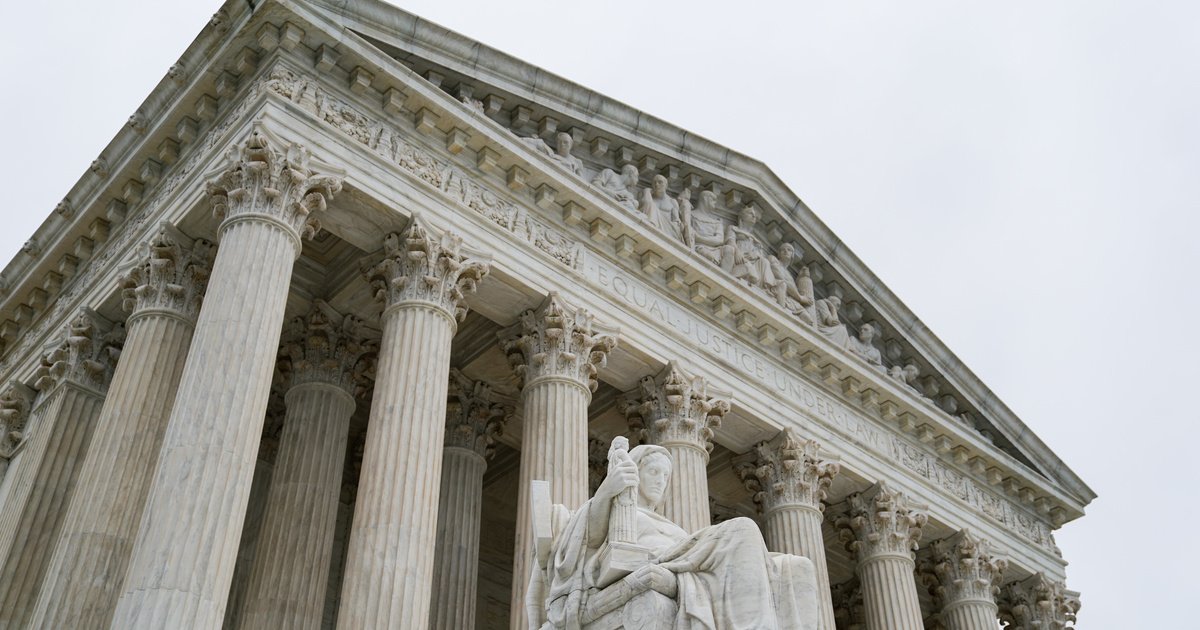- Joined
- Jul 15, 2021
- Messages
- 1,381
- Reaction score
- 469
- Location
- Florida
- Gender
- Male
- Political Leaning
- Progressive
Every time one talks about the 2nd A, people start debating if it's an individual or a collective or a civil right. BTW, one day I might open a thread explaining why I think it's neither an individual or a collective right. But this is not it. Because I think it's not as relevant a debate as it would be to ask: A right to do WHAT?
If you want to discuss the grammatical structure of the 2nd A, that topic is here
 debatepolitics.com
debatepolitics.com
Many confuse the right to keep and bear arms, with an individual right to own weapons. Here I demonstrate (or linguists demonstrate, I just summarize it) that this part is in reference, not to hunting, not to sports.... not even to self defense; but to a military scenario. As historian Garry Wills put it, “One does not bear arms against a rabbit.”
Two databases, COFEA (Corpus of Founding Era American English) and COEME (Corpus of Early Modern English) https://lawcorpus.byu.edu/, compile basically all the documents written around the time the Bill of Rights was written. Books, articles, pamphlets.... even signs!
Using these databases, linguists searched for all occurrences of the words "bear" within 4 words, left or right of "arms" to find out what the phrases "keep", "bear" or "keep and bear" would mean to any moderately educated American of the period.
Eliminating sentences that obviously had nothing to do with the matter (such as "the bear tore away his arms" or "she couldn't bear looking at his arms" ... and similar) they found that only 2% related to anything other than military. And even those required a qualifier to indicate that it was not military. For example, in some state constitutions where the phrase that appears is something like "...bear arms for the defence of the state and for personal defence". With no qualifiers, the phrase always referred to a military setting.
While "keep and bear arms" with no qualifiers refers to a military scenario, the "keep" and "bear" next to "arms" part has a few exceptions. "To keep" was used very frequently in the 18th century to mean "maintain in good working condition". It does neither imply nor preclude ownership. You keep something in good working condition regardless of whether you own it or not. Like a professional housekeeper keeps a house they don't own, or a groundskeeper keeps in good order a garden they don't own. "To bear" can also mean to carry. But the complete idiom "to keep and bear arms" with no qualifiers always refers to a military scenario.
So, bottom line: when the 2nd A was passed, it was clear in the minds of all those who approved it, as well as those who read it, that "the right to keep and bear arms", with no other qualifiers, implied "arms" as used in a military scenario. In their mind this didn't mean hunting, or sports or even personal self defense.... it meant a right to protect the freedom of a free state because a well regulated militia was necessary.
https://languagelog.ldc.upenn.edu/nll/?p=42613
I highlight with no qualifiers. Because there are instances in which the sentence explicitly states that weapons would be used for personal purposes. For example "to keep and bear arms for self defense and the defense of the country". A qualifier does modify the military scenario condition. But the fact that a qualifier was necessary is more evidence that, without a qualifier, any English speaker at the time would know it referenced something related to the military.
Even though "keep and bear arms" would necessarily evoke a military scenario in the mind of any 18th century English speaker, there is nothing in the phrase that would evoke ownership. Many members of the militia owned their weapons. However, the Constitution (Article 1, Section 8, Clauses 15 and 16) references how militia members would "keep and bear arms" even if they don't own them.
So, bottom line: as demonstrated through the search of these databases, there is NOTHING in the wording of the 2nd A that implies ownership in the minds of any average (and above) English speaker.
There is no doubt that at the time, most Americans (our founding fathers included) valued owning weapons. In no small part because of the mistrust of a standing army. But the 2nd A didn't limit nor did it affirm a right to own weapons. It simply didn't address it. It only addressed the afore mentioned right to keep and bear arms.
If you want to discuss the grammatical structure of the 2nd A, that topic is here
English 101 For Gun Advocates.
I wrote a series of posts a long time ago for another site, hoping to get serious posters to comment on the facts here included. This is the first in the series. I would like to try it on this one. The SCOTUS Heller decision is the Law of the Land. However, it uses linguistic and historical...
 debatepolitics.com
debatepolitics.com
Many confuse the right to keep and bear arms, with an individual right to own weapons. Here I demonstrate (or linguists demonstrate, I just summarize it) that this part is in reference, not to hunting, not to sports.... not even to self defense; but to a military scenario. As historian Garry Wills put it, “One does not bear arms against a rabbit.”
Two databases, COFEA (Corpus of Founding Era American English) and COEME (Corpus of Early Modern English) https://lawcorpus.byu.edu/, compile basically all the documents written around the time the Bill of Rights was written. Books, articles, pamphlets.... even signs!
Using these databases, linguists searched for all occurrences of the words "bear" within 4 words, left or right of "arms" to find out what the phrases "keep", "bear" or "keep and bear" would mean to any moderately educated American of the period.
Eliminating sentences that obviously had nothing to do with the matter (such as "the bear tore away his arms" or "she couldn't bear looking at his arms" ... and similar) they found that only 2% related to anything other than military. And even those required a qualifier to indicate that it was not military. For example, in some state constitutions where the phrase that appears is something like "...bear arms for the defence of the state and for personal defence". With no qualifiers, the phrase always referred to a military setting.
While "keep and bear arms" with no qualifiers refers to a military scenario, the "keep" and "bear" next to "arms" part has a few exceptions. "To keep" was used very frequently in the 18th century to mean "maintain in good working condition". It does neither imply nor preclude ownership. You keep something in good working condition regardless of whether you own it or not. Like a professional housekeeper keeps a house they don't own, or a groundskeeper keeps in good order a garden they don't own. "To bear" can also mean to carry. But the complete idiom "to keep and bear arms" with no qualifiers always refers to a military scenario.
So, bottom line: when the 2nd A was passed, it was clear in the minds of all those who approved it, as well as those who read it, that "the right to keep and bear arms", with no other qualifiers, implied "arms" as used in a military scenario. In their mind this didn't mean hunting, or sports or even personal self defense.... it meant a right to protect the freedom of a free state because a well regulated militia was necessary.
https://languagelog.ldc.upenn.edu/nll/?p=42613
I highlight with no qualifiers. Because there are instances in which the sentence explicitly states that weapons would be used for personal purposes. For example "to keep and bear arms for self defense and the defense of the country". A qualifier does modify the military scenario condition. But the fact that a qualifier was necessary is more evidence that, without a qualifier, any English speaker at the time would know it referenced something related to the military.
Even though "keep and bear arms" would necessarily evoke a military scenario in the mind of any 18th century English speaker, there is nothing in the phrase that would evoke ownership. Many members of the militia owned their weapons. However, the Constitution (Article 1, Section 8, Clauses 15 and 16) references how militia members would "keep and bear arms" even if they don't own them.
So, bottom line: as demonstrated through the search of these databases, there is NOTHING in the wording of the 2nd A that implies ownership in the minds of any average (and above) English speaker.
There is no doubt that at the time, most Americans (our founding fathers included) valued owning weapons. In no small part because of the mistrust of a standing army. But the 2nd A didn't limit nor did it affirm a right to own weapons. It simply didn't address it. It only addressed the afore mentioned right to keep and bear arms.




